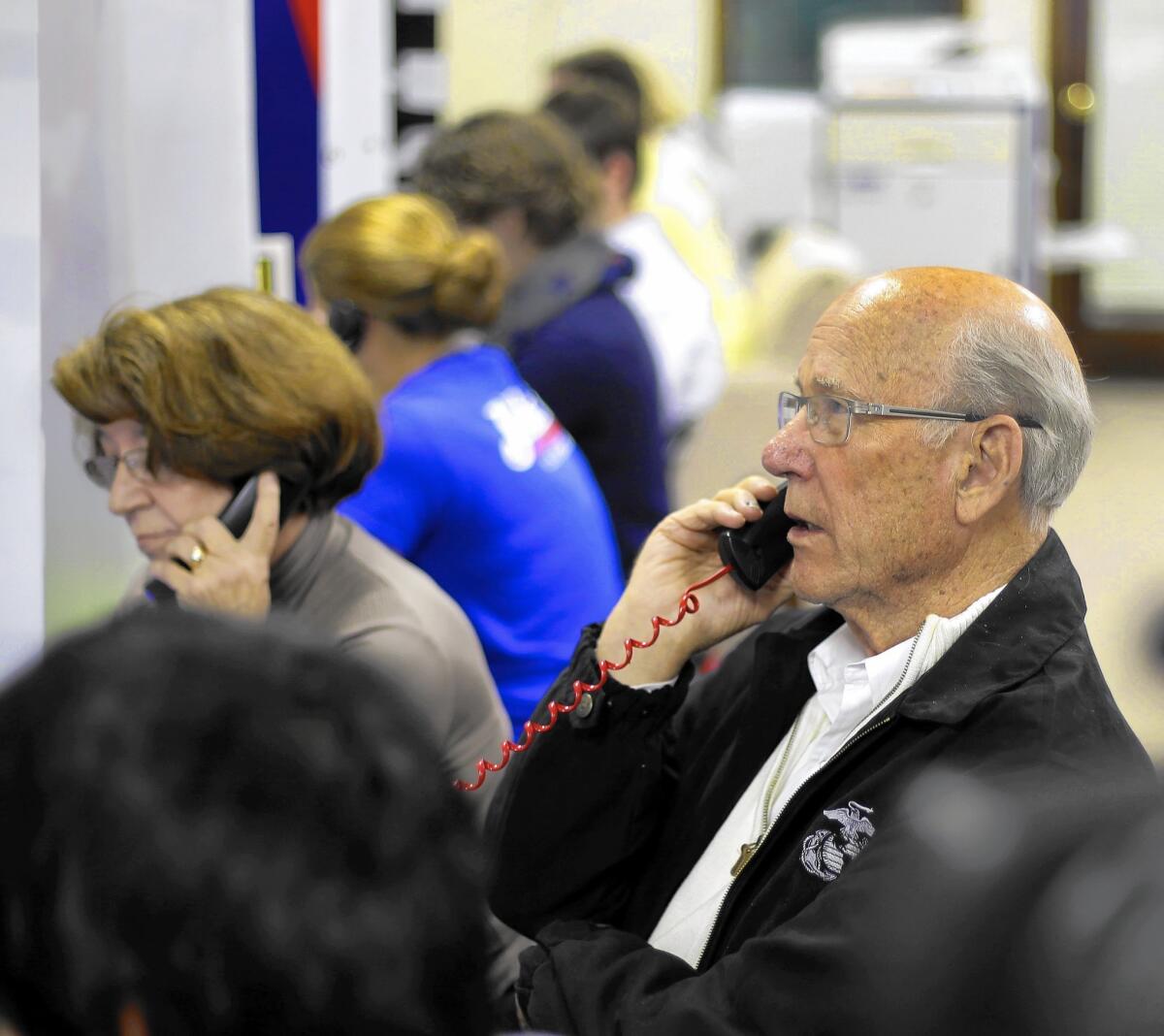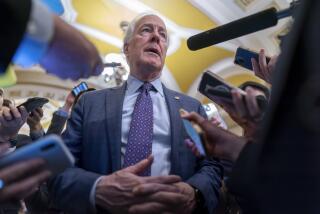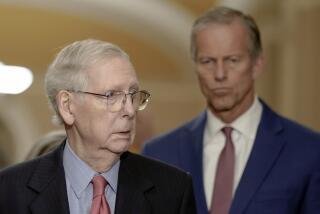Republican Sen. Pat Roberts weathers independent challenge in Kansas

In the end, Kansas Republicans flirted but did not stray.
Kansans sent GOP Sen. Pat Roberts back to the Senate for a fourth term Tuesday night, after an unexpected nail-biter in this bastion of reliably conservative politics. Roberts beat independent Greg Orman by just a few percentage points, racking up votes in rural parts of the state and stemming defections from moderates in the suburbs.
The reelection of the 78-year-old political fixture was hardly anticipated early on to be must-watch campaigning. But between the GOP candidate’s early stumbles, Orman’s rapid ascent and a restless and divided Republican electorate, the race took a turn for the interesting.
Adding to the intrigue was Orman’s hard-to-pin-down political leanings. The 45-year-old businessman stayed relentlessly on message, meeting quietly with small groups and refusing to say exactly how he would align if he became crucial to the fight over control of the Senate.
The oddity of all this political drama playing out on the staid, predictable High Plains has not been lost on a state that hasn’t elected a Democrat to the Senate since Franklin D. Roosevelt was president. (Kansans have never elected an independent senator.)
The flood of outside money and barrage of television campaign ads was unheard of in this does-not-swing state. Pollsters said they had trouble judging how voters would react and who would vote.
“It’s all kind of fun,” Burdett Loomis, political science professor at the University of Kansas, said before the election. “We’ve been treated to two months of, you know, the circus came to town!”
For Republicans it was hardly fun.
“We all thought this was going to be an easy election year, and then we started noticing Kansas was in the national news,” state Senate President Susan Wagle told a buttoned-up crowd at the GOP party on Tuesday evening before the result was decided. “You all answered the call.”
Under the national spotlight, the Senate race, along with an equally tight contest for governor, became a barometer of GOP voters’ tolerance for their party’s tilt to the right and an indication of how far ire at incumbents had spread. Both Roberts and Gov. Sam Brownback, a fellow Republican, have taken cues from the tea party, and if even Kansas pulled back the reins, some surmised, a course correction for that national party could be in the works.
But some observers cautioned against reading Roberts’ race closely for the same national meaning. The senator’s woe was as much a collision of circumstances and slip-ups as a gauge of the national mood.
Roberts, who won six years ago with 60% of the vote, appeared caught off guard and ill-prepared for outsider attacks. He emerged bruised from a tea party primary challenge and befuddled by allegations that after more than 30 years in Congress he’d spent too much time in Washington. In trying to clear up a dispute over his residency, Roberts made things worse: “Every time I get an opponent — I mean, a chance — I come home,” he said.
When the Democrat in the race abruptly dropped out, Roberts found himself in a face-off, not with a Democrat burdened by President Obama’s baggage — like so many of his Senate colleagues — but with an independent traveling light.
Orman, a multimillionaire who poured his own money into his campaign, delivered an appealing message to a disgruntled electorate. He said he would not be hemmed in by party allegiances. He promised “problem solving” rather than specific positions on legislation.
But on the biggest issue of the final stretch of campaign, Orman refused to be pinned down. With control of the Senate potentially hanging in the balance, he would not declare how or if he would vote for Senate majority leader.
“I’ve said from the beginning that I’m going to caucus with whichever party really wants to solve problems in the country,” Orman told MSNBC on Tuesday. “And I think the real question comes down to, if we are the deciding vote, if we’re the swing vote, I think that’s a great opportunity.”
For Roberts, a party loyalist, and some voters, such comments were naivete at best and dishonesty at worst. Roberts and his allies cast Orman as “risky,” “strange” and not “one of us.”
Plenty of voters in Kansas believed that to be true.
Frank Cucchiare, a 77-year-old developer, stood in line to vote Tuesday steps away from Orman at a rec center in Olathe, and quietly said he would not be voting for his neighbor.
Nodding at the candidate in line, he said: “I just don’t believe him. I know that he’s a Democrat.”
kathleen.hennessey@latimes.com
Twitter: @khennessey
More to Read
Get the L.A. Times Politics newsletter
Deeply reported insights into legislation, politics and policy from Sacramento, Washington and beyond. In your inbox three times per week.
You may occasionally receive promotional content from the Los Angeles Times.






